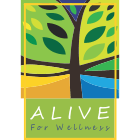THE RESILIENT MIND PROJECT ORIGINS
In 2012, a team of thought-leading academics, clinical professionals and former ministers of health formed The Resilient Mind Project to determine the most effective way to help people increase their resilience. Their investigations, together with advances in behavioral sciences, resulted in the following list of effective resilience-building initiatives. In addition to these initiatives, they discovered a portion of individuals in most populations, who exhibit a readiness to change and experience the greatest outcomes.
The Resilient Mind (TRM) project was derived from the science and ongoing research from it’s sister companies:
Alive is a boutique impatient program that focuses on helping people overcome depression, anxiety and PTST . Our treatment modalities are derived from our research into advanced neuro, social and behavioural sciences.
The force behind the Alive experience is our unbending determination to persevere in the trenches with clients to achieve mental and emotional well-being. Alive is composed of a passionate team of people who are skilled in helping individuals succeed at restoring their mental and emotional health. We accomplish this by using a multi-strategy approach incorporating evidence-based treatment modalities followed by after care support (via telephone and a smart phone app).
MyOutcomes is a tool kits that helps therapist and councelor increase the effectiveness of one-on-one work with clients. Myoutcomes utilizes PCOMS evidence-based, trans-theoretical scales for monitoring the quality and outcome of behavioral healthcare services and has been successfully implemented within diverse clinical populations. Our work is used in a wide variety of government and private service settings in over 28 countries including the US Military and over 30 Universities (to train phycology students). (Learn more about Myoutcomes)








